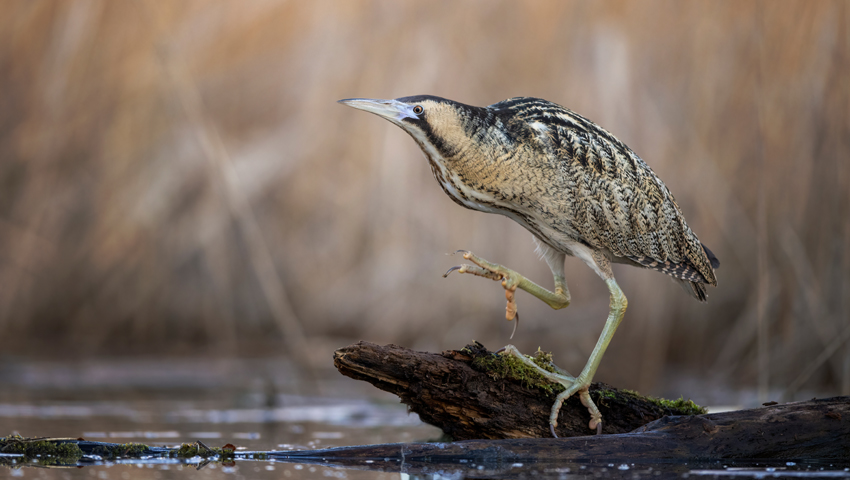SIXTY-three projects across the country have been awarded a share of £14.5 million by Natural England to help recover 150 species nationwide.
The Species Recovery Programme Grant Scheme supports targeted action to recover our most endangered species. The funding will support efforts to fine tune habitat conditions for our rarest species, and actions such as propagation, captive rearing, translocations, research and solution-trialling to find the best approaches to enable endangered wildlife to survive and thrive.
England’s wildlife is facing extreme pressures – habitat fragmentation, climate change and invasive species have created huge declines, with average species abundance falling by 52%. Numbers of the Duke of Burgundy Butterfly, for example, have declined by some 50% in the last 20 years.
Tony Juniper, Chair of Natural England, said, “Nature is in drastic decline all around us, with England now one of the most nature depleted countries in Earth. Many once common animals and plants are much reduced with some 15 percent of species at risk of becoming extinct here.
“It’s a dire situation, but can still be turned around. We know this because we’ve seen the population of the once endangered Bittern rise dramatically, the recovery of the Fen Raft Spider and Water Voles successfully reintroduced to areas from where they had previously been lost. The partnership projects we are highlighting today demonstrate the power of collaborative action to reverse species decline and we look forward to seeing positive practical progress as a result of the investments being made”.
Some of the projects to benefit from the funding include:
- Chalk stream restoration – The WET Hogsmill project led by the South East Rivers Trust, will improve a rare chalk stream in Southwest London, supporting species such as Brown Trout, Sea Trout, Eels and Water Voles returning to the river.
- The Wiltshire Chalk Partnership Chalk Species Revival – To support the recovery of the Wart-biter Bush Cricket, Marsh Fritillary, the Large Blue, the Adonis Blue and the Duke of Burgundy butterflies which are in serious sustained decline. Led by the National Trust in collaboration with Natural England, the RSPB, Wiltshire Wildlife Trust and the Pewsey Downs Farmer Group, the project will create a mosaic of habitat connecting butterfly populations across the landscape.
- Reintroducing the Large Marsh Grasshopper in East Anglia – The Citizen Zoo Hop of Hope project to reintroduce the Large Marsh Grasshopper to East Anglia. Last seen in the area in 1968, this species has suffered decline due to degradation of the bog and fen habitat. The project will support efforts to re-establish a population in this area, building on innovative work to release grasshoppers from pre-incubated eggs.
- Saving North Yorkshire’s Native Crayfish – Claws for Thought delivered by the Yorkshire Wildlife Trust, this project will work with members of the North Yorkshire Crayfish Forum to create a resilient population of the native White-clawed Crayfish. The project will establish a crayfish rearing facility, and interventions, such as introducing woody debris and reducing sediment, will provide new breeding sites and food sources supporting sustainable populations of native Crayfish.
- Horseshoes Heading East – This partnership project, led by the Vincent Wildlife Trust, will create a viable population of Greater Horseshoe Bats in south-east England through a combination of roost creation and habitat enhancement. Improving connectivity across the landscape and linking maternity sites will improve the breeding success of this rare and iconic species. The project will also support other rare bat species such as the Greater Mouse-eared Bat and the Grey Long-Eared Bat.
Bella Davies, Chief Executive of the South East Rivers Trust, said, “We are thrilled to have been successful in our application to Natural England’s Species Recovery Grant to support the recovery of water voles, eel and native wild trout which have become near extinct on the Hogsmill river in South West London.
“The Hogsmill is a rare urban chalk stream meaning that it’s not only a very rare and special habitat for wildlife, with only 220 chalk streams worldwide, but an important resource for many people too. Our project will restore river habitat and create backwaters where fish can take refuge from pollution, create wetlands to improve water quality which will help reintroduce water voles which were once prevalent on the river. We are excited to see this much needed work begin on the ground to bring water vole, eel and trout back to the Hogsmill”.
The money has been awarded following a competitive application round, and will be used by environmental charities, wildlife organisations, local authorities and charities in projects across the country.
The projects will help deliver the Nature Recovery Network, creating, improving and connecting more wildlife-rich areas benefitting people and helping species to thrive.
The projects will also provide new opportunities for people to experience the wellbeing benefits of accessing the natural world, and help build resilience to climate change, while sustaining the vital ecosystems that provide us with healthy soil, clean air and water.
Improving strongholds for wildlife and investing in long-term species recovery will help achieve the government’s pledge to reduce the species extinction by 2042 compared to 2022 levels, restore more than 500,000 hectares of wildlife habitat, and increase species abundance as set out in the Environmental Improvement Plan.
